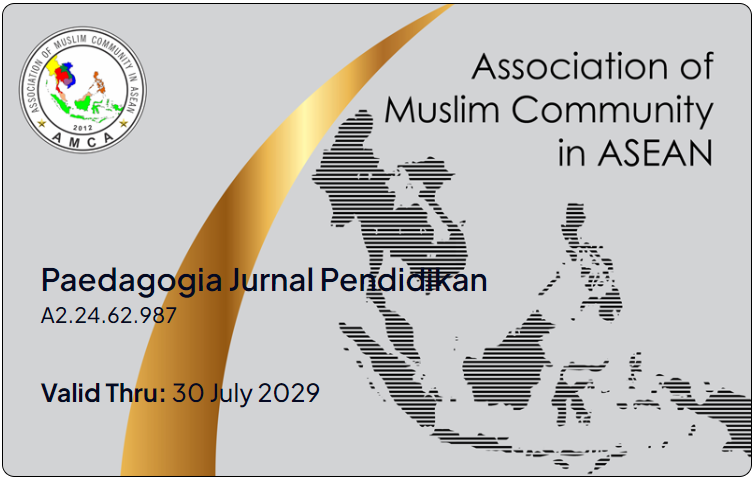PROMOTING TECHNOLOGY-BASED LEARNING IN NIGERIA: ROLE OF THE STAKEHOLDERS
Abstract
This study investigated the roles of stakeholders in promoting technology-based learning in Nigeria. The population of the study comprised all senior secondary school III students in public secondary schools, their teachers and parents in Akoko South West, Ondo State. Simple random procedure was used to select ten (10) schools out of seventeen (17) secondary schools in the Local Government. Four hundred (400) samples comprised 300 students, 50 teachers and 50 parents were randomly selected from the population. Self-developed questionnaire served data collection purpose. The validated instrument, has a reliability index of 0.68. Findings from the study revealed that parents are to provide ICT gadgets for their children at home and monitor them so as to guide against abuse of the technology; it was discovered that Government, P.T.A., old students, philanthropists are to build and equip ICT units in schools and to, organize workshops and seminars for teachers on ICT. It was concluded that building and equipping of ICT centers by the government is very germane, PTA old students association and philanthropists. However, teachers are to strategically and technically make use of technology to foster teaching and learning in Nigeria. It was recommended that workshop and seminars are to be organized for personnel in ICT in schools by the Government and teachers are to use new innovative method to blend learning and make the process technology-based.
Key words: stakeholders, parents, old students, technology-based, learning.
Downloads
References
Annetta, L., Murray, M., Laird, S., Bohr, S., & Park, J. (2008). Investigating student attitudes toward a synchronous, online graduate course in a Multi-User Virtual Learning Environment. Journal of Technology and Teacher Education, 16(1), 5-34. Retrieved from http://www.editlib.org/p/21984
Bachmair, B., Pachler, N., & Cook, J. (2009). Mobile phone as cultural resources for learning: an analysis of educational structures, mobile expertise and emerging cultural practices. Academic Press.
Henderson, A. T., & Mapp, K. L. (2002). A New Wave of Evidence: The Impact of School, Family, and Community Connections on Student Achievement. Annual Synthesis, 2002.
Torres. P.D. (2021). Active Engagement of Stakeholders During the Pandemic: Basis for Creating Flexible Learning Environment for Students. International Journal of Innovative Science and Research Technology. Volume 6, Issue 2
Chinnery, M. G. (2006). Going to the MALL: Mobile Assisted Language Learning. Language Learning & Technology, 1, 9–16.
Chipunza, P. R. C. (2013). Using mobile devices to leverage student access to collaboratively-generated resources: A case of WhatsApp instant messaging at a South African University. Paper presented at International Conference on Advanced Information and Communication Technology for Education (ICAICTE 2013).
Kerry L. Who are the stakeholders? The Journal of Technology Studies.
Mellati, M. & Khademi, M (2018). Technology-Based Education:Challenges of Blended Educational Technology. The user has requested enhancement of the downloaded file.
Torres. P.D. (2021). Active Engagement of Stakeholders During the Pandemic: Basis for Creating Flexible Learning Environment for Students. International Journal of Innovative Science and Research Technology. Volume 6, Issue 2
Copyright (c) 2022 Paedagogia: Jurnal Pendidikan

This work is licensed under a Creative Commons Attribution-NonCommercial 4.0 International License.
The author agrees to the following conditions upon publishing a work to Paedagogia: Jurnal Pendidikan:
1. Each article is licensed under a Creative Commons Attribution-NonCommercial 4.0 International License. The author(s) recognizes that Paedagogia: Jurnal Pendidikan has the right to be the first to publish under a Creative Commons Attribution-NonCommercial 4.0 International License. This license permits the copying and redistribution of this material in any form or format, as well as the composition, modification, and creation of derivative works of this material for any purpose, but Non commercial, as long as the author is credited with the original work.
2. Authors may submit articles separately or arrange for non-exclusive distribution of manuscripts previously published in this journal in other forms (e.g., to the author's institutional repository, publication in books, etc. ), provided that the manuscript is acknowledged as having been published first in the Paedagogia: Jurnal Pendidikan.
3. A copyright submission agreement must attach each approved manuscript prior to publication. You may obtain the form for the copyright submission agreement here (INA) (EN).

































 This work is licensed under a
This work is licensed under a 